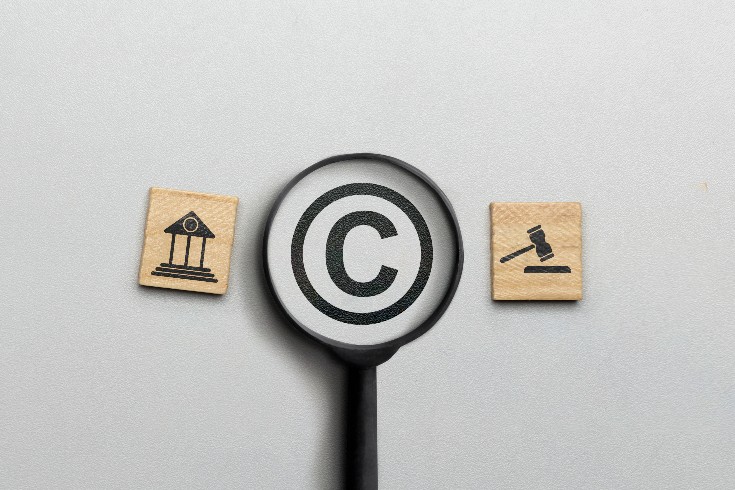What are the Points to Note When Offering First-Time Limited Discounts for Regular Supplement Purchases?

In online supplement sales, there may be initial discounts such as “only 500 yen for the first shipping fee” or “90% off for the first time” on the condition of regular purchases. This is a strategy to stimulate consumer purchasing desire, but if mismanaged, it may violate the law, so caution is required.
In this article, we will explain the points to note when offering initial limited discounts for regular supplement purchases to sellers.
Examples of Issues with Subscription Purchases
There has been an increase in problems related to contracts for initial discounts conditional on subscription purchases on online shopping sites. According to a survey conducted by the National Consumer Affairs Center of Japan, consultations regarding “subscription purchases” of mail-order health foods and other products have surged 15-fold in five years, from 1,925 cases in 2014 to 29,177 cases in 2019 (Heisei 26 to Reiwa 1).
Let’s take a look at some specific examples that have become issues as complaints from the purchaser’s side.
Complaint Example ①
A customer clicked on an advertisement on a social networking site that said “First trial free!” and purchased enzyme diet supplements on the linked online shopping site. The customer was attracted by the terms “Trial product 0 yen, shipping 500 yen” and made a purchase. However, upon checking the usage details later, there was a charge for two 9,000 yen products, totaling 18,500 yen. When the customer immediately contacted the customer center, they were told, “If you do not cancel or return within 14 days after ordering, 9,000 yen will be automatically charged and the product will arrive every month.” However, there was no such description on the site, order screen, or email, and more than 14 days had already passed when the first product arrived.
Complaint Example ②
While searching on Google on a smartphone, an advertisement for a supplement that said “Just drink and lose weight! The first time is virtually free” appeared. The customer promptly purchased and tried the product, but did not feel any effect. The customer had no intention of continuing, but two weeks later, the same product arrived and was charged 8,000 yen. Upon re-reading the site, the customer realized that it was a subscription course that could not be cancelled until it had been received five times. The customer immediately contacted the sales company, but had difficulty getting through on the phone.
Complaint Example ③
An advertisement for kelp tea appeared on a social networking site, and a celebrity was promoting it, saying “My blood became smoother,” so the customer impulsively purchased it. The customer immediately tried the product that arrived, but it did not suit their taste and their stomach rumbled, so they decided to stop using it. When the customer expressed a desire to cool off, they were told, “We do not accept cooling off in online shopping. Also, it is stated in the terms and conditions that you need to purchase up to the fourth time.”
Is a First-Time Discount Illegal?

There is a question of legality when a product is sold at a discounted price on the condition of a certain number of purchases or regular subscriptions, and the subscriber who cancels midway is charged the difference without the discount. In conclusion, this is not illegal, but attention must be paid to the way it is displayed.
Points to Note in Display Method
Advertisements for mail-order sales, especially for subscription contracts that continue two or more sales contracts, are regulated in terms of “display of sales conditions” (Article 8, Paragraph 7 of the Japanese Act on Specified Commercial Transactions Enforcement Regulations). There is an obligation to state the following matters on the advertisement for mail-order sales and on the application/confirmation screen for internet mail-order sales.
- The fact that it is a subscription contract and the amount (total payment price, etc.)
- Contract period
- Delivery time of each product, payment time, etc.
https://monolith.law/corporate/supplement-advertisement[ja]
Prohibition of Sales Contract Conclusion Against Customer’s Will
According to a document compiled by the Consumer Affairs Agency in November 2017 (Heisei 29), it is prohibited to make an application for a sales contract against the customer’s will in mail-order sales. The specific examples are as follows.
- If all the main contents of the subscription contract are not displayed on the screen at the final stage of the application
- If part of the main contents of the subscription contract is displayed at a distant place on the screen at the final stage of the application, making it difficult to easily recognize all the contents
About the enforcement of the Act on Specified Commercial Transactions, etc. – Guide to the Act on Specified Commercial Transactions
file:///C:/Users/shiori/Downloads/20171201ac04.pdf[ja]
Claim example ① where there is no description of the subscription contract on the site, order screen, or email, has a very high possibility of being illegal.
If you display the subscription and cancellation methods in a way that is not easily recognizable, it may be deemed as “application for a sales contract against the customer’s will”, which is a prohibited act.
Even if the purpose is to encourage purchases, there is a possibility of being judged as illegal, so caution is required in the display.
To Avoid Being Deemed Illegal

Clearly State the Cancellation Terms
Not only should you detail the terms of the contract, such as the number of regular purchases and payment methods, but you should also clearly display the cancellation terms. If these terms are not clearly stated, it may not be recognized that “all the main contents of the contract terms are stated,” and there is a risk of being deemed illegal.
In the case of complaint examples ② and ③, it was necessary to clearly state on the application screen specific conditions such as “cancellation is not possible until you receive 5 times” and “you must continue regular purchases at least 4 times to cancel”.
Consumers who do not know how to cancel will likely contact the business by phone or email. There are not a few cases where they consult with the Consumer Life Center because it is difficult to get in touch.
Clearly State Whether Returns are Accepted
In fact, the cooling-off system does not apply to online shopping.
To avoid troubles like complaint example ③, it is necessary to properly display whether returns are accepted.
Site Design Considerations
Even if the contents to be stated, such as contract contents and cancellation conditions, are properly displayed, if the design or display method makes it difficult for consumers to find the content, there is a possibility of being judged illegal.
Since smartphones have smaller screens than computers, the probability of missing checks on stated items increases, so you must be careful.
Also, purchasers who have jumped from SNS or video sites to the sales site may press the purchase button without checking the contents of the site well.
Even if the consumer is at fault, if it is recognized that there is a deficiency in the site’s description, there is a risk of being judged illegal.
To reduce the risk of consumer misunderstanding as much as possible, it is important to make the site simple and easy to see. Avoid display methods that make the text small or decorate only good-sounding words flamboyantly.
Summary
We have discussed what happens to the initial discount when a customer realizes that they have entered into a regular purchase contract for supplements after the sale and decides to cancel.
To conclude, it is not illegal to charge the regular price without applying the initial discount in the event of a mid-term cancellation. However, it is necessary to clearly state the conditions, such as the fact that it is a regular purchase contract, on the application and confirmation screen at the time of product purchase.
Even if there is a description, if there are deficiencies in the way it is described, such as the position of the description being far off, it may be judged as illegal.
The initial discount for the regular purchase contract of supplements is a case where troubles with consumers are likely to occur. As the judgment is difficult, we recommend consulting a lawyer if you are unsure.
Category: General Corporate





















